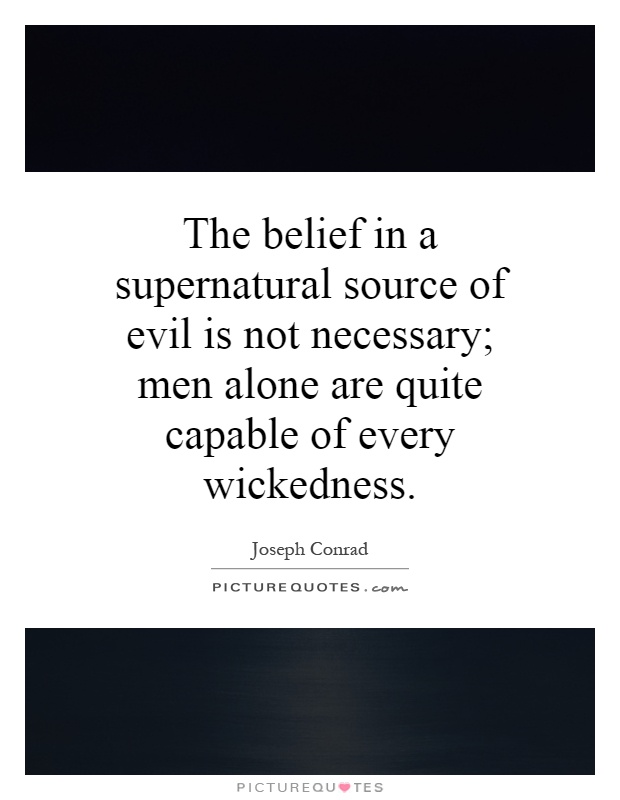The belief in a supernatural source of evil is not necessary; men alone are quite capable of every wickedness

The belief in a supernatural source of evil is not necessary; men alone are quite capable of every wickedness
Joseph Conrad, a renowned author known for his exploration of the human psyche and the darkness that lies within, often delved into the theme of evil in his works. In his novel "Heart of Darkness," Conrad challenges the notion that evil is solely the result of supernatural forces, arguing instead that it is inherent in human nature.The quote "The belief in a supernatural source of evil is not necessary; men alone are quite capable of every wickedness" encapsulates Conrad's belief that the true source of evil lies within the hearts of men. Throughout "Heart of Darkness," Conrad explores the depths of human depravity through the character of Kurtz, a man who descends into madness and cruelty in the heart of the African jungle. Kurtz's transformation serves as a stark reminder of the capacity for evil that exists within all individuals, regardless of external influences.
Conrad's portrayal of the darkness within man is a reflection of his own experiences and observations. As a sailor who traveled to remote corners of the world, Conrad witnessed firsthand the brutality and inhumanity that humans are capable of. His time in the Congo, where "Heart of Darkness" is set, exposed him to the horrors of colonialism and the exploitation of native peoples, further shaping his views on the nature of evil.
In "Heart of Darkness," Conrad challenges the idea that evil is a supernatural force that can be externalized and blamed on others. Instead, he suggests that evil is a part of the human condition, a darkness that lurks within each individual. By confronting this darkness head-on, Conrad forces his readers to confront their own capacity for wickedness and to question the true source of evil in the world.












 Friendship Quotes
Friendship Quotes Love Quotes
Love Quotes Life Quotes
Life Quotes Funny Quotes
Funny Quotes Motivational Quotes
Motivational Quotes Inspirational Quotes
Inspirational Quotes